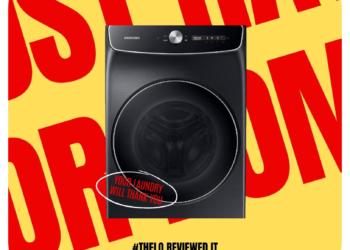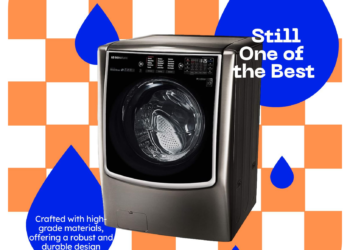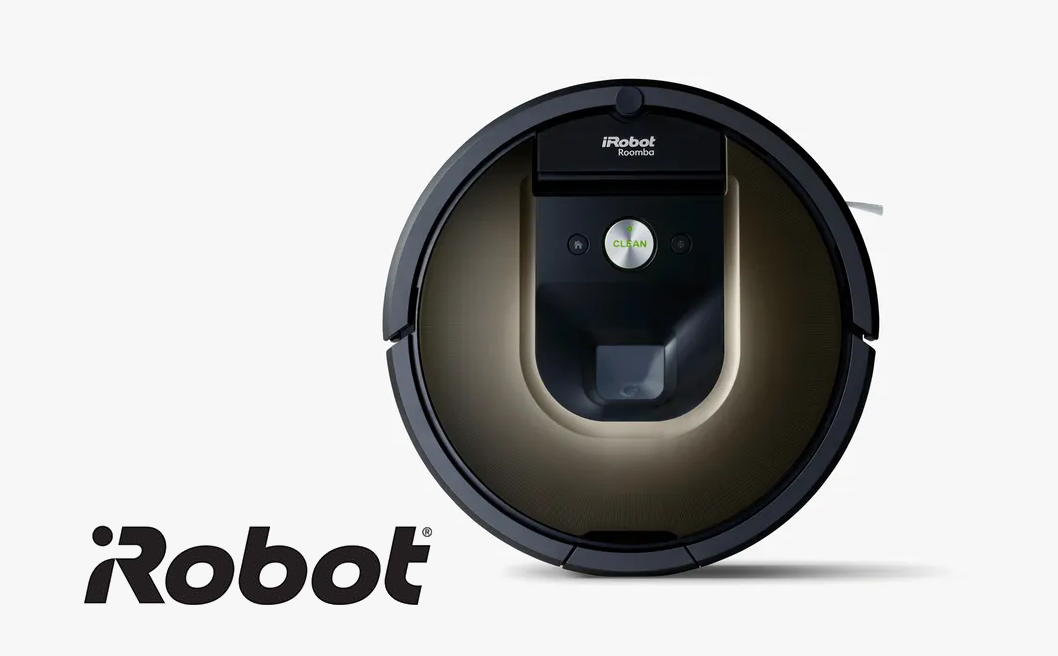by Gerald Johnson
Two titans of the cleaning world: the Eureka E10 and the Eufy Clean X8. We’ve personally tested each aspect of these vacuums, from their sleek designs to their dynamic cleaning capabilities. We explore which of these machines can truly transform your cleaning routine.
VERSUS
Legion Go vs Steam Deck
Legion Go
Best Overall Gaming
Sleek and lightweight build
Vibrant and crisp visual experience
Capable of handling a wide range of games smoothly
Provides several hours of gameplay
Steam Deck
Immersive gaming experience
Offers a vast array of gaming titles
larger screen provides rich colors and sharp details
Seamlessly runs games with quick load times and smooth gameplay.
Supports a range of accessories
Design and Build Quality
Holding the Legion Go, I was immediately struck by its sleek, sturdy design. It’s clear that build quality wasn’t an afterthought. Its ergonomic grips made my long gaming sessions comfortable, a significant plus for any handheld device.
The Steam Deck, on the other hand, feels robust and well-crafted. It’s a bit heavier, but the weight distribution is balanced, making it surprisingly comfortable to hold. Its buttons and triggers have a satisfying tactile response, enhancing the gaming experience.
Comparison
- Both devices score high on design and build, but the Legion Go’s lighter build and ergonomics give it a slight edge in comfort.
Display and Visual Experience
The display on the Legion Go is vibrant and crisp. Playing graphically intense games, the colors popped, and the motion was fluid, making every game visually stunning.
Steam Deck’s screen is equally impressive, with rich colors and sharp details. Its slightly larger screen size provided an immersive experience, especially noticeable in expansive game worlds.
Head-to-Head
In terms of display, it’s a tie. Both offer exceptional visual experiences, but the Steam Deck’s larger screen might appeal more to those who prioritize immersion.
Performance and Gaming Capabilities
In terms of performance, the Legion Go is a powerhouse. It handled every game I threw at it with ease, from fast-paced shooters to graphically demanding RPGs. The game library is extensive, offering a wide range of titles.
The Steam Deck didn’t disappoint either. Its performance is top-notch, seamlessly running games with quick load times and smooth gameplay. Its compatibility with a vast Steam library is a huge win for variety.
Gaming Power Play
Both devices are impressive, but the Steam Deck’s broader game library and seamless integration with Steam give it a slight advantage for avid gamers.
Lenovo Legion Go 8.8″ 144Hz WQXGA Handheld Touchscreen Gaming PC AMD Ryzen Z1 Extreme 16GB RAM 512GB SSD Shadow Black, 8APU1
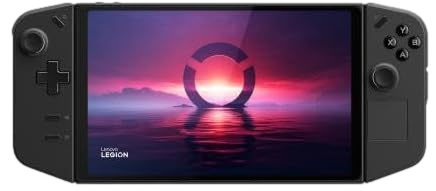

| SPECIFICATION | Lenovo 8.8 inch Screen Windows 11 16 GB AMD Processor 3.3 GHz |
| REASONS TO BUY | Ergonomic Design Impressive Display Solid Performance Good Battery Life |
| RESONS NOT TO BUY | Limited Library Price |
Valve Steam Deck 512GB Handheld Console
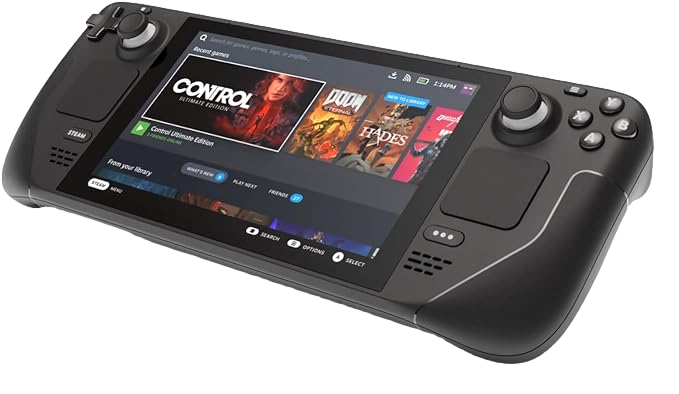

| SPECIFICATION | Steam 7.4 inch Screen SteamOS 3 512GB AMD Processor 3.5GHz |
| REASONS TO BUY | Expansive Game Library High-Quality Display Excellent Performance Great Connectivity |
| RESONS NOT TO BUY | Bulkier Design Battery Life |
Battery Life and Portability
The Legion Go boasts decent battery life, enough to keep you gaming for several hours on a single charge. Its lightweight design makes it easy to carry around, a boon for gamers on the move.
The Steam Deck, while offering similar battery performance, is a bit bulkier. It’s portable but not as effortlessly so as the Legion Go, especially for those who travel frequently.
Battery and Mobility Battle
The Legion Go wins in terms of portability, thanks to its lighter design and good battery life, making it ideal for gaming anywhere, anytime.
User Interface and Experience
Navigating the Legion Go’s interface is intuitive and user-friendly. Its software features are designed with gamers in mind, offering a seamless and engaging user experience.
The Steam Deck’s UI is familiar to anyone who has used Steam. It’s straightforward and efficient, providing easy access to a vast game library and community features.
Interface Clash
Both interfaces are well-designed, but the Steam Deck’s familiar Steam-based UI might be more appealing to those already integrated into the Steam ecosystem.
Connectivity and Accessories
The Legion Go offers solid connectivity options and supports a range of accessories, enhancing its versatility as a gaming device.
Steam Deck also excels in connectivity, with the added benefit of seamless integration with Steam’s ecosystem. Its support for accessories like controllers and external displays adds to its appeal.
Connectivity and Expansion Showdown
While both devices offer great connectivity and accessory support, the Steam Deck’s integration with the Steam ecosystem offers a more comprehensive experience.
Price and Value for Money
Priced competitively, the Legion Go offers great value, considering its performance, design, and portability.
The Steam Deck might come at a slightly higher price, but its extensive game library and powerful performance justify the investment for serious gamers.
Cost Comparison
Both devices offer good value, but your choice might depend on your budget and how deeply you’re invested in the gaming world.
Final Verdict
Choosing between the Legion Go and Steam Deck comes down to personal preference and gaming style. If portability and ergonomics are your top priorities, the Legion Go is your best bet. However, for an immersive gaming experience with a vast library at your fingertips, the Steam Deck is hard to beat.
Our showdown between the Legion Go and Steam Deck reveals two formidable contenders in the world of portable gaming. Each has its strengths and unique appeal, catering to different gaming preferences. Whether you’re a casual gamer or a hardcore enthusiast, both devices promise to elevate your gaming experience on the go. Share your thoughts and experiences with these portable gaming powerhouses!
FAQS
- What are the main differences in design between the Legion Go and Steam Deck?
- The Legion Go is sleeker and more lightweight, making it more ergonomic for long gaming sessions, while the Steam Deck is a bit heavier but offers balanced weight distribution for comfortable handling.
- Which device offers a better display for gaming, Legion Go or Steam Deck?
- Both devices offer vibrant and crisp displays, but the Steam Deck’s slightly larger screen may provide a more immersive gaming experience.
- How do the gaming libraries of the Legion Go and Steam Deck compare?
- The Steam Deck, with its integration with Steam, offers a more expansive game library compared to the Legion Go.
- Which device is more portable, the Legion Go or the Steam Deck?
- The Legion Go is more portable due to its lighter design and good battery life, making it easier to carry around.
- Can the Steam Deck handle all types of games smoothly?
- Yes, the Steam Deck is designed to run a wide range of games smoothly, thanks to its powerful hardware and quick load times.
- What are the connectivity options like for the Legion Go and Steam Deck?
- Both devices offer solid connectivity options, but the Steam Deck has an edge with its broader accessory support and integration with the Steam ecosystem.
- Is the Legion Go suitable for long gaming sessions?
- Yes, the Legion Go is suitable for long sessions, providing comfort through its ergonomic design and sufficient battery life.
- Which device is better for gamers on a budget?
- The Legion Go might be a more budget-friendly option, though both devices are priced at the premium end of the market.
- How does the user interface of the Steam Deck compare to the Legion Go?
- The Steam Deck’s user interface, based on the familiar Steam platform, is user-friendly and efficient, while the Legion Go offers an intuitive interface with software features designed for gamers.
- Are there any overheating issues with either the Legion Go or Steam Deck during intensive gaming?
- Both devices are designed to manage heat effectively, but like all gaming devices, they may get warm during prolonged or intensive gaming sessions. However, neither is known for significant overheating issues.



